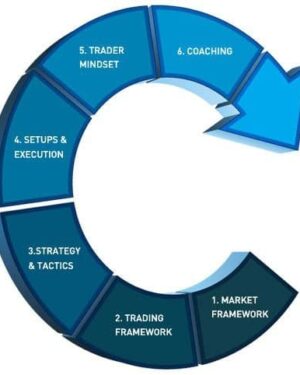Alex Becker – The H-COM Program
Original price was: $999.00.$49.00Current price is: $49.00.
This Course is available for download now. You can contact us for Screenshots or Demo. Access for this course will be sent on google drive. Join our telegram channel to see updates and occasional discounts. If you want to pay through Paypal or Card contact us – On Telegram Click Here or contact on Mail – [email protected]
Description
Alex Becker – The H-COM Program
Alex Becker – The H-COM Program | 3.25 GB
The H-Com (Hero E-Commerce) Program is a 6 week online program with the sole goal of creating a Shopify store and getting it profitable in as short of time as possible with step by step proven methods taught by E-Commerce experts making at least $500,000 a MONTH in revenue.
The Business Analysis Certification Program is aligned with the (Business Analysis Body of Knowledge Guide) BABOK version 3 and has a total of 14 sections that are also presented as individual courses for your convenience.
1. Introduction to Business Analysis.
Foundational concepts related to business analysis. First we’re going to look at business analysis and what it is, what a business analyst does, and some of the core concepts related to working in this field. Then we’ll look at some of the key terms, such as stakeholder, requirements, and design.
2. Business Analysis Planning and Monitoring. The tasks in this knowledge area produce documents that direct you as a business analyst throughout a project. These documents include the general approach you’ll take, the plan for engaging stakeholders, and how you’ll manage information, and changes to the requirements.
3. Business Analysis Elicitation and Collaboration. Find out how business analysts identify and reach agreements with stakeholders on requirements. The tasks in this knowledge area describe how you as a business analyst reach a mutual understanding of various types of business analysis information with stakeholders. The activities associated with this task include workshops, surveys, and ad hoc collaboration and conversations.
4. Business Analysis and Requirements Life Cycle Management. Requirements are the foundation of all your business analysis activities. If the objective of a project is to deliver solutions that best meet requirements, then you’d best keep a close eye on those requirements and the designs that address them. So, we’ll look at what your role is in tracing and maintaining requirements and designs.
5. Business Analysis and Strategy Analysis.
It covers everything from assessing the current state of operations, doing some visioning regarding a
desired future state, determining what the risks are that will need to be managed, and then coming up with the best strategy for realizing the desired future state.
6. Business Analysis and RADD: Requirements Definition. This course covers the first three tasks, which involve creating a list of requirements and then verifying that they are of sufficient quality to be used for further work. And then, validating them to ensure they deliver benefits to the stakeholders, align with business goals, and align with the objectives of the change.
7. Requirements Analysis and Design Definition. Related to creating a requirements architecture. You develop a set of designs and analyze those to determine where the best value is. The final step is to develop the solution recommendation that represents the best design.
8. Business Analysis and Solution Evaluation.
It involves measuring and analysing solution performance as well as identifying limitations within
the solution and the enterprise that may be keeping the solution from reaching its full value potential.
The final task is to recommend actions to remove the limitations and thereby increase the value of the solution.
9. Analytical Techniques Used for Business Analysis. Analytical techniques assist the business analyst to identify problems and to find solutions.
This course will introduce Analysis Tools for Scoping and Planning, Models that Support Business Analysis and Analyses that Support Decision making.
10. Activities and Tools Used for Business Analysis.
The categories of techniques covered in this course include idea generation and data gathering techniques
that you can use with groups, such as brainstorming, collaborative games, and workshops.
We’ll also look at decision-making techniques, such as estimation and prioritisation.




